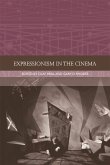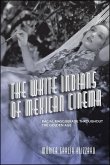Between 1961 and 1989, the years of the building and dismantling of the Berlin Wall, the New German Cinema came into being, the product of the diverse efforts of West German politicians, West German filmmakers, and foreign -- chiefly American -- film enthusiasts. This book takes the story of the New German Cinema beyond its strictly German context to show its relation to the international constellations of the Cold War and postcolonial politics. After a reevaluation of the political and aesthetic atmosphere of the 1950s and 1960s, John E. Davidson looks at the ways in which conceptions of "the German" are deployed in important works through the two generations that followed. His book is the first to examine the legitimation function of German national cinema not just in relation to the German history associated with World War II and the Holocaust, but also within the shifting configuration of neocolonialism. Here we see how the struggle for colonial independence necessitated a reconsolidation of the imaginary community of "the West", and how the creation of a new German national cinema served this purpose.
Hinweis: Dieser Artikel kann nur an eine deutsche Lieferadresse ausgeliefert werden.
Hinweis: Dieser Artikel kann nur an eine deutsche Lieferadresse ausgeliefert werden.








